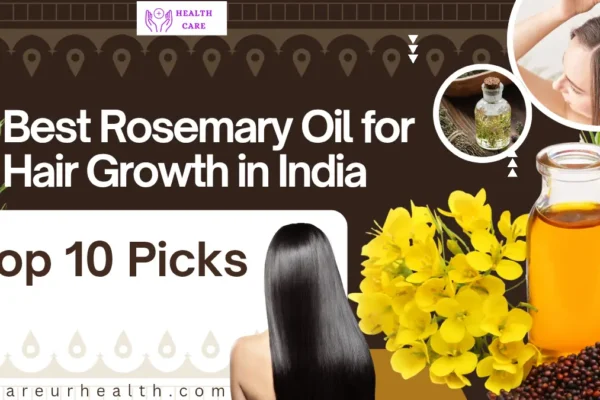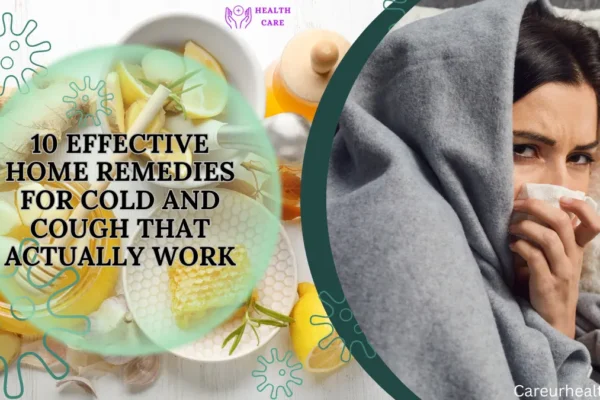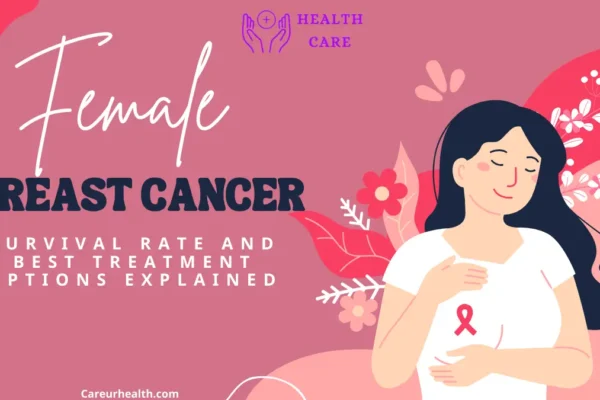Introduction to Olive Oil for Hair Care:
Experimenting with different types of olive oil can help you find the best option for your hair care routine. Olive oil has long been celebrated for its health benefits, both internally and externally. In recent years, it has gained popularity as a natural remedy for hair care, offering a range of benefits.
Table: Types of Olive Oil
| Type of Olive Oil | Description |
| Extra Virgin Olive Oil | Highest quality, unrefined olive oil extracted using mechanical methods. Retains maximum nutrients and antioxidants. Ideal for hair and scalp health. |
| Virgin Olive Oil | Unrefined olive oil extracted using mechanical methods, similar to extra virgin olive oil but may have slightly lower quality standards. Retains beneficial nutrients for hair care. |
| Olive Oil | Refined olive oil that undergoes processing to remove impurities and enhance shelf life. Less nutrient-rich compared to extra virgin and virgin olive oil, but still offers moisturizing properties for hair. |
| Light Olive Oil | Highly refined olive oil with a lighter flavor and color. Contains fewer nutrients and may be less effective for hair care compared to unrefined varieties. |
| Organic Olive Oil | Produced from olives grown without the use of synthetic pesticides or fertilizers. Offers similar benefits to conventional olive oil but may be preferred for its organic certification. |
From promoting shine and softness to potentially aiding in hair growth. Olive oil is rich in natural antioxidants, vitamin E, and phytosterols. Which contribute to its health benefits for both hair and overall well-being. Additionally, it contains oleic acid, a natural cleansing agent. Making it effective for removing buildup and impurities from the scalp and hair strands.
Understanding the Types of Olive Oil:
There are several types of olive oil available, each with its own properties and benefits for hair care. Extra virgin olive oil (EVOO) is known for its highest quality and maximum nutrient content. It retains the purity and taste of olives and is rich in antioxidants. Making it ideal for nourishing and conditioning the hair. Virgin olive oil is similar to EVOO but with slightly less stringent production standards.
It still offers moisturizing properties for dry and damaged hair. Olive oil is a blend of virgin and refined olive oils, providing hydration and conditioning benefits. Refined olive oil, processed with heat and chemicals. May lack the same level of beneficial compounds found in unrefined varieties but can still be used for hair care.
Understanding the Role of Olive Oil in Hair Growth:
Olive oil contains a variety of nutrients and compounds that can contribute to hair growth and overall hair health. Vitamin E, a powerful antioxidant found in olive oil, helps to protect the scalp. And hair follicles from oxidative stress, which can inhibit hair growth and contribute to hair loss.
Additionally, oleic acid, the primary monounsaturated fat in olive oil. Acts as a natural cleanser, removing buildup and impurities from the scalp to promote a healthy environment for hair growth.
oreover, oleic acid’s cleansing action can also help to balance the scalp’s natural oils. Preventing excess oil production that can lead to greasy hair and scalp issues. By maintaining a healthy oil balance, oil ensures that the scalp remains nourished and hydrated. Without becoming overly oily or dry, promoting optimal conditions for hair growth and overall hair health.
To harness the benefits of oil for hair growth and health, incorporating it into your hair care routine is simple. You can use oil as a pre-shampoo treatment by massaging it into the scalp and hair before washing.
This allows the oil to penetrate deeply into the hair follicles, nourishing the scalp and strands from within. Alternatively, you can use oil as a leave-in conditioner by applying a small amount to damp hair after washing. This helps to lock in moisture, smooth the hair cuticle, and prevent frizz and breakage.
Promoting Scalp Health for Optimal Hair Growth:
A healthy scalp is essential for supporting hair growth, as it provides the foundation for strong, resilient hair follicles. Olive oil can help maintain scalp health by moisturizing. And nourishing the skin, reducing dryness, flakiness, and inflammation that can impede hair growth. Massaging oil into the scalp can also stimulate blood flow. Delivering essential nutrients and oxygen to the hair follicles and promoting healthy hair growth.
Furthermore, oil can help to reduce inflammation and soothe irritation on the scalp. Creating a more comfortable environment for healthy hair growth. Inflammation is a common issue that can arise due to various factors. Including dryness, sensitivity, and the presence of harmful microorganisms.
Left unchecked, inflammation can disrupt the hair growth cycle and lead to issues like hair thinning and shedding. However, olive oil contains anti-inflammatory compounds that help to calm and soothe the skin, reducing redness, swelling, and discomfort.
Another way that oil promotes scalp health is by stimulating blood flow to the hair follicles. Massaging oil into the scalp can help to increase circulation, delivering vital nutrients. And oxygen to the hair follicles and promoting healthy hair growth.
Improved blood flow nourishes the follicles, strengthens the hair shaft, and encourages the growth of new hair. Resulting in thicker, fuller locks over time. Additionally, scalp massage can help to relax the muscles and relieve tension. Further enhancing the overall health and well-being of the scalp.
Understanding Extra Virgin Olive Oil (EVOO) and Its Benefits for Hair:
Extra Virgin Olive Oil (EVOO) is considered the highest quality olive oil, as it is extracted from olives using cold-pressing methods, without the use of heat or chemicals.
This gentle extraction process helps retain the oil’s natural antioxidants, vitamins, and minerals, making it an excellent choice for hair care. EVOO is rich in vitamin E, which nourishes the scalp and hair follicles, promoting healthy hair growth and preventing oxidative damage.
Exploring Virgin Olive Oil and Its Potential for Hair Health:
Virgin olive oil is another unrefined variety of olive oil that is extracted using mechanical methods, without the use of heat or chemicals. While it may not have the same stringent quality standards as EVOO, virgin oil still retains many beneficial nutrients and compounds that can support hair health. Its moisturizing properties help hydrate the scalp and hair, reducing dryness and flakiness while promoting softness and shine.
Furthermore, virgin olive oil has anti-inflammatory properties that can help soothe and calm the scalp, reducing irritation and discomfort. Inflammation is a common issue that can contribute to a variety of scalp conditions, including dandruff, itching, and redness. By reducing inflammation, virgin oil helps to create a more comfortable environment for healthy hair growth, allowing the hair to thrive without being hindered by scalp issues.
When using virgin oil for hair care, it’s important to choose a high-quality, cold-pressed oil that has been extracted using mechanical methods. This ensures that the oil retains as many of its natural nutrients and beneficial compounds as possible, maximizing its effectiveness for promoting hair health.
To use virgin oil on the hair, simply warm the oil slightly and massage it into the scalp and hair, focusing on the roots and ends. Leave the oil on for at least 30 minutes, or overnight for a deep conditioning treatment, before shampooing and rinsing as usual.
Examining Refined Olive Oil and Its Role in Hair Care:
Refined olive oil undergoes a more intensive refining process than unrefined varieties, which may strip away some of its natural nutrients and antioxidants. As a result, refined oil may be less effective for hair care compared to EVOO or virgin oil.
However, it can still serve as a lightweight moisturizer for the hair and scalp, providing hydration without weighing the hair down.
Comparing Olive Oil Blends and Infused Oils for Hair Care:
In addition to pure olive oil varieties, there are also olive oil blends and infused oils available that combine oil with other ingredients for added benefits. Common blends include oil with coconut oil, argan oil, or jojoba oil, each offering unique properties for hair care.
Infused oils may contain herbs, essential oils, or vitamins that target specific hair concerns, such as dandruff, hair loss, or scalp irritation.
Choosing the Best Olive Oil for Your Hair Care Needs:
When selecting oil for hair care, it’s essential to consider your specific hair type, concerns, and preferences. Extra Virgin Olive Oil (EVOO) is generally recommended for its superior quality and nutrient content, making it suitable for most hair types. However, virgin olive oil and blends may also offer benefits depending on individual needs.
List: Tips for Choosing the Best Olive Oil for Hair
- Look for “Extra Virgin” or “Virgin” labels: Opt for unrefined olive oils labeled as “extra virgin” or “virgin,” as they retain the highest nutrient content and offer the most benefits for hair health.
- Check for certifications: Choose olive oils that are certified organic or have undergone quality testing to ensure purity and authenticity.
- Consider your hair type: Tailor your choice of olive oil to your hair type and needs. Extra virgin olive oil is suitable for most hair types, while lighter varieties may be preferred for fine or oily hair.
- Read ingredient labels: Avoid olive oils with added preservatives, fragrances, or other additives that may diminish their effectiveness for hair care.
- Conduct a patch test: Before applying olive oil to your hair and scalp, perform a patch test on a small area of skin to check for any adverse reactions or sensitivities.
Nourishing Hair Follicles for Stronger, Thicker Hair:
Healthy hair growth begins at the root, where hair follicles produce new hair strands. Olive oil penetrates deep into the hair follicles, nourishing them with essential nutrients and moisture to support stronger, thicker hair growth. Its ability to soften and condition the hair shaft also helps prevent breakage and split ends, allowing hair to grow longer and healthier over time.
Furthermore, olive oil has natural emollient properties that help to smooth the cuticle of the hair shaft, making it appear shinier and more lustrous. By improving the overall condition of the hair shaft, olive oil enhances the appearance of the hair, giving it a healthy, vibrant glow. This can help to boost confidence and self-esteem, encouraging individuals to embrace their natural hair and feel proud of their appearance.
Maximizing the Benefits of Olive Oil for Hair Growth:
To harness the potential benefits of oil for hair growth, it’s essential to use it consistently and in conjunction with a healthy hair care routine.
Incorporating oil into pre-conditioning treatments, scalp massages, and leave-in conditioners can provide ongoing nourishment and support for optimal hair growth. Additionally, maintaining a balanced diet rich in nutrients like vitamins, minerals, and proteins can further enhance the effectiveness of oil treatments for promoting hair growth.
Overall, oil is an excellent choice for promoting healthy hair growth due to its ability to nourish the hair follicles, strengthen the hair shaft, and condition the hair.
By incorporating olive oil into your regular hair care routine, you can enjoy stronger, thicker, and more lustrous hair that looks and feels its best. Whether used as a pre-shampoo treatment, a leave-in conditioner, or a styling aid, olive oil can help you achieve the healthy, beautiful hair you desire.
Choosing the Right Olive Oil for Your Hair:
When selecting an oil for hair care, it’s essential to consider factors such as hair type, concerns, and quality. Different types of olive oil may be more suitable for specific hair types, such as dry, damaged, thick, or curly hair. High-quality, organic olive oils are recommended to ensure maximum benefits and purity for your hair care routine.
Many individuals have questions about the effectiveness of oil for promoting hair growth and addressing specific hair concerns. Common questions include whether oil can stimulate dormant hair follicles, accelerate hair growth, and improve hair density and thickness. While oil may not produce immediate or dramatic results, consistent use over time can contribute to healthier, stronger hair growth by nourishing the scalp and hair follicles.
How to Use Olive Oil for Hair:
Olive oil can be used in various ways to improve hair health and appearance. As a pre-conditioning treatment, apply oil to dry or damp hair, focusing on the ends and scalp, and leave for 10-15 minutes before rinsing and shampooing.
For scalp massage, warm oil slightly and massage into the scalp to improve scalp health and stimulate hair growth. As a leave-in conditioner, apply a small amount of oil to damp hair, focusing on dry or damaged areas, and leave in overnight or throughout the day for deep conditioning and hydration.
Conclusion: Unlocking the Potential of Olive Oil for Hair Care
Olive oil stands out as a versatile and natural solution for addressing various hair concerns, from dryness and damage to scalp health and potential hair growth promotion. By understanding the different types of oil and their properties, individuals can choose the most suitable option for their hair care needs. With proper application and consistency, olive oil treatments can contribute to healthier, shinier, and more resilient hair.
In conclusion, olive oil offers a natural and holistic approach to promoting hair growth and enhancing overall hair health. Its nutrient-rich composition, antioxidant properties, and moisturizing effects make it an excellent choice for individuals seeking to improve the condition and appearance of their hair.
By incorporating oil into their hair care routine and maintaining a healthy lifestyle, individuals can support optimal hair growth and enjoy stronger, thicker, and more resilient hair over time.
Frequently Asked Questions About Olive Oil for Hair:
1. Will Olive Oil Help My Hair Grow?:
While there is limited scientific evidence specifically addressing olive oil’s impact on hair growth, its antioxidant properties and nourishing effects on the scalp may support healthy hair growth.
2. Is Olive Oil Suitable for All Hair Types?:
Olive oil can benefit a variety of hair types, particularly dry, damaged, or chemically treated hair. However, individuals with oily or fine hair may prefer lighter oils or use oil sparingly to avoid weighing down the hair.
3. Is Extra Virgin Olive Oil the Best Option for Hair Care?:
Extra virgin olive oil is often recommended for its superior quality and nutrient content. However, virgin and regular olive oils can also offer benefits for hair health, depending on individual preferences and needs.
4. How Often Should I Use Olive Oil on My Hair?:
The frequency of olive oil use depends on individual hair needs and preferences. Some people may benefit from weekly olive oil treatments, while others may find that using it less frequently or incorporating it into their regular hair care routine yields optimal results. Experimentation with different usage frequencies can help determine the most effective approach for achieving healthy, nourished hair.
5. Can Olive Oil Cause Buildup on the Scalp?:
While olive oil is generally well-tolerated by most individuals, excessive or improper use may lead to buildup on the scalp. To prevent buildup, it’s essential to use olive oil sparingly and ensure thorough rinsing during shampooing. Additionally, incorporating clarifying or cleansing treatments into your hair care regimen can help remove any accumulated residue and maintain scalp health.
Rohit Sachdeva










